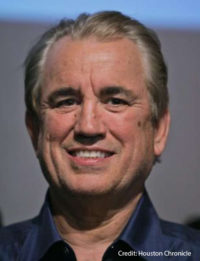Famed Houston trial lawyer John O’Quinn made a career out of suing insurance companies and bad-mouthing arbitration as “an institution straight out of hell.”

Nine years after his death, O’Quinn has lost his final courtroom battle. It happens to be against his own professional liability insurance carrier and it involves a $41 million arbitration award.
The U.S. Court of Appeals for the Fifth Circuit ruled late Thursday that Lexington Insurance Co. was not required to indemnify O’Quinn and his law firm, O’Quinn & Laminack, for the costs of settling a case that accused him of improperly charging his clients for millions and millions of dollars in expenses that had nothing to do with the litigation.
The case dates back to the 1990s when O’Quinn represented thousands of women suing the makers of silicone breast implants for illnesses they claimed were related to the implants.
O’Quinn charged a 40 percent contingency fee for any final damage award, plus expenses. The case settled for in excess of $1 billion. O’Quinn’s cut was $243.6 million.
But his clients later turned against O’Quinn when they learned he charged each of them a 1.5 percent fee for expenses. Many of the expenses had nothing to do with the case, including bar association dues and flower deliveries.
When O’Quinn’s clients sued him, he invoked a little noticed provision in his engagement agreement with clients that said any disputes would be handled in arbitration. Many legal commentators pointed out that O’Quinn had long bashed arbitration as ineffective and a subversion of the civil justice system.
The arbitration panel hit O’Quinn with a $41 million damage award – $25 million of it as punishment for over-charging his clients.
O’Quinn settled with his clients, paying them $46 million, as post-judgment interest was mounting at a pace of $11,000 a day.
But O’Quinn and his insurance carriers went to federal court to battle over coverage. The primary insurer settled out of court for $5 million, but Lexington, which was the “excess insurer” refused. The federal district court ruled in favor of Lexington.
O’Quinn died in 2009, but lawyers for his law firm and estate continued the litigation and appealed to the Fifth Circuit.
In a unanimous 14-page opinion authored by Judge Priscilla Owen, a three-judge panel ruled that Lexington was not legally bound to cover O’Quinn because the claims is for penalties for O’Quinn’s bad conduct – not traditional losses.
Judge Owen said the key was that the arbitration panel pinged O’Quinn for wrongful conduct because he breached his contractual agreements with his clients and his fiduciary duty to his clients.
“The arbitration panel explained that ‘quite simply, if O’Quinn is allowed to improperly withhold client funds with impunity, other lawyers may believe that they can do likewise. Such a result would destroy the very integrity of the special and unique relationship that exists between an attorney and client,’” Judge Owen wrote. “It could not be clearer that the panel was imposing a ‘penalty’ or ‘sanction’ on O’Quinn. That is not a ‘Loss’ within the meaning of the policy.”
Editor’s Note: This version corrects the name of the author of the Fifth Circuit opinion.
